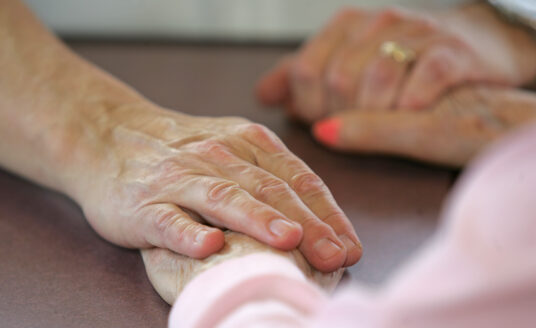You saw it coming. Dad was requiring more care, more of your time, more than you could possibly give. But you also felt guilty. He had come to rely on you. If you suggested seeking a new caregiver, how would he react? Would he feel betrayed? Frightened? Depressed? Angry? Or would he accept your suggestion without making much of it?
How do you make the transition to a professional caregiver?
Keep in mind that Dad may not realize how much time and energy his care requires. He also may fear that the presence of a home care professional means a further loss of independence.
The conversations with Dad will be difficult but necessary. Focus on staying positive. Make sure he knows that you won’t be abandoning him. Make sure he understands that a home care professional can actually make him more independent as she or he sees to his needs.
If need be, bring others into the conversations—another family member, the family physician, or trusted and respected friends to point out the issues that currently exist and explain how they can be met.
Starting the Transition to a New Caregiver
Start preparing for the transition early. This will take more than a few days, so don’t wait until you are “burnt out” and simply not able to provide the care your father needs.
Work with the prospective home care agency to establish a trusting relationship with Dad. Interview potential caregivers before they come to the home. You would want to know:
- What experience do they have?
- What is the plan for communicating with the family?
- Can they cite some examples of how they handled a stressful situation?
- How do they deal with the awkwardness of the first visits in a home?
- Do they consider themselves quiet or talkative?
- What are their hobbies/interests? (Especially good, if Dad has some of the same hobbies and interests)
If Dad is amenable and able, he should be a part of this initial conversation. However, don’t expect tensions to ease quickly.
Learning the Routine
When you and Dad agree to a home care professional, make sure this person knows the routine of the house. This is very important to a senior, especially one with cognitive challenges. Be there for the first few visits to help the home care staff member understand Dad’s routine.
A person’s home is a very personal space, it is where they can most truly be themselves and let down their guard. It is also a place where they feel vulnerable in the presence of someone they don’t know.
Sit back and observe the two of them together. Is the employee connecting with Dad—sharing a story, a mutual interest? Are they trying to establish a rapport with Dad? Is Dad smiling, or is the caregiver pushing too hard and only increasing his tension and resistance?
When considering these questions, however, keep in mind that several visits may be required to break the ice and establish what the relationship will be like.
While home care agencies try to assign the same staff member consistently to make things more familiar and comfortable for the senior, other staff may be required from time to time to handle special needs, or to substitute for the person Dad is used to seeing. This makes it a good idea for other personnel who may be called upon to meet Dad as well. It’s important for him to accept that he may need a team of caregivers to provide him with what he wants and needs.
Patience
After the initial awkwardness, a strong bond may form between Dad and his care team. However, if the caregivers’ match is not a good one, let the home care agency know so they can offer other candidates.
It is easy, as a family caregiver, to get frustrated with the process of finding just the right professional to meet Dad’s requirements, but keep the ultimate goal in mind—placing a competent professional in his home that he trusts and feels comfortable with, and who will make his life better.
If you’re a caregiver seeking more resources, visit Bethesda’s blog for Caregiver Tips.
| Whether you choose independent living, assisted living, memory care, or skilled nursing, your experience at Bethesda will be filled with compassionate care and meaningful connections. If you are considering independent living, we encourage you to tour our communities, including Bethesda Barclay House – Clayton, Bethesda Gardens – Kirkwood, Bethesda Orchard – Webster Groves, Bethesda Terrace – South County, Village North Retirement Community – Florissant, and The Oaks at Bethesda Villas – Kirkwood/Webster. If you have any questions about our non-profit senior living communities, contact us today. |



